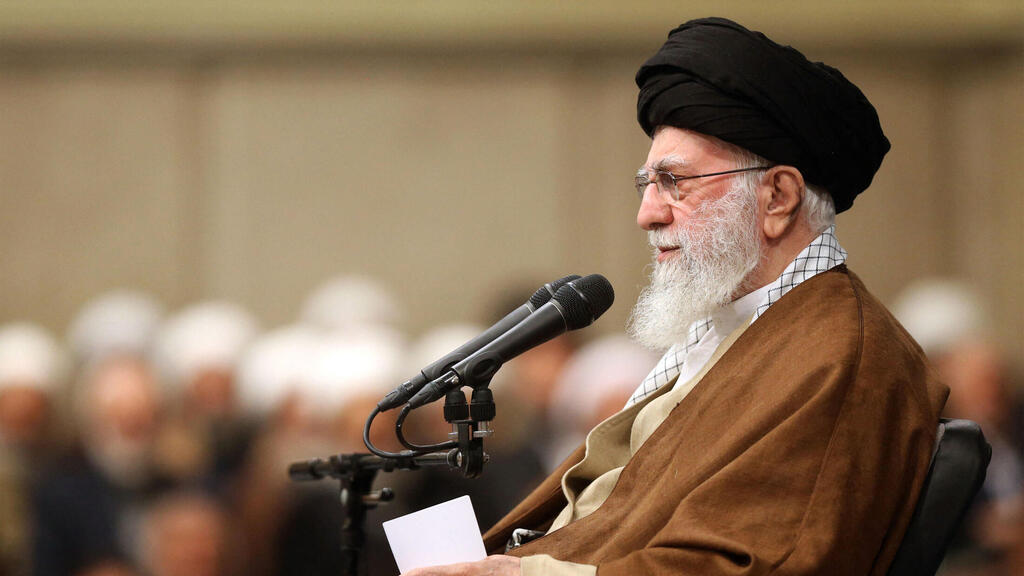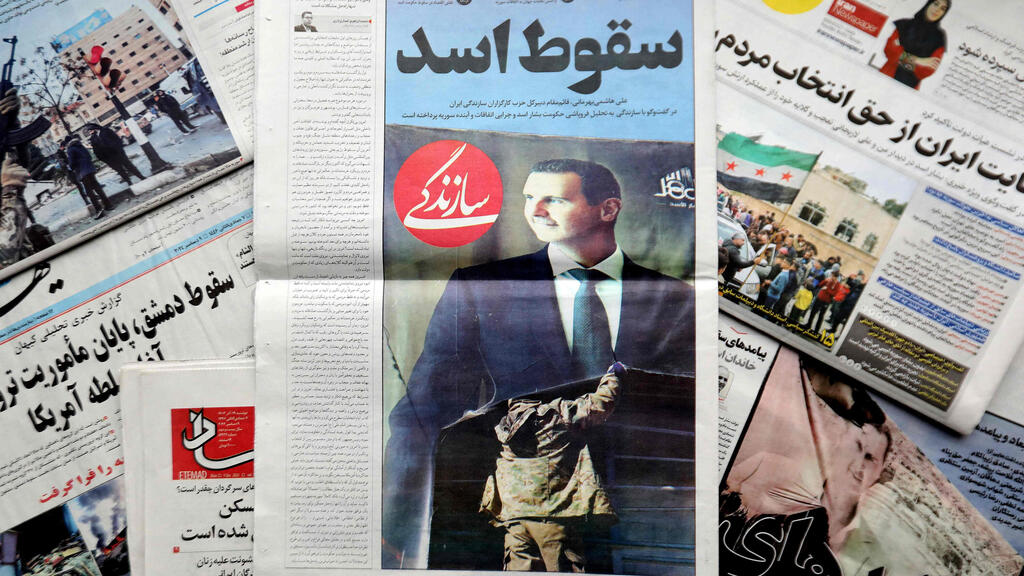Getting your Trinity Audio player ready...
Iranians including members of the cleric, former officials and even some at the Iranian Revolutionary Gard Corps (IRGC) have been expressing their anger at the nearly 30 billion dollars spent and now lost in Syria, according to a report in the New York Times.
The anger now directed at the Ayatollah regime has been expressed openly in television studios, newspapers and public events, even by conservatives who have been supporters of the government in Tehran.
The regime has responded forcefully and has gone after some of its critics but that has not stopped the discussion over the extraordinary failure of the Iranian strategy.
Iran had backed Syria for the past four decades and has used it as a base for the spread of its Islamic revolution in the Middle East and as a main component of the "axis of resistance."
"Iran controlled military bases, missile factories, tunnels and warehouses that served the supply chain for its network of militants. From Syria, Iran funneled weapons, cash and logistical support to Hezbollah in Lebanon, Hamas in Gaza and militants in the Israeli-occupied West Bank and Iraq," the report reads.
During the Syrian civil war, Iranian troops fought to protect the regime of Bashar Assad and had paid in Iranian blood. With the fall of the Assad regime, the pro-Iranian militias and the Iranian forces were made to withdraw.
"In 11 days, we've lost everything we've fought for, in the past 13 years," a member of the IRGC said.
One former Iranian lawmaker said in a social media post that Assad's fall can be viewed as a positive thing because Iran would no longer waste money to prop up, this "spider's web," alluding to the analogy once used by another Iranian ally who has been removed from the scene, Hezbollah chief Hassan Nasrallah who used the term when describing Israeli society and perceived strength.
Why were you spending billions of dollars of oil revenues that belong to the Iranian people on Assad?
Opponents of the regime in Tehran have long criticized the vast investments of funds in Syria and in the region but they have been ignored. Now the anger is being shared by families of Iranians who have died in Syria's war who ask if their loved ones had fallen in vain.
Alireza Mokarami who runs a news site and had served in Syria in the past, referred to what he called the "catastrophic failure" of Iran in Syria. “Why were you spending billions of dollars of oil revenues that belong to the Iranian people on Assad until the very end if he wasn’t even listening to you?” he asked in a post. “At least on the topic of Syria, stop lying and be honest with the people.”
Hassan Shemshadi, a prominent Iranian commentator and a supporter of the regime told the Times that the public debate is being held in all levels of society, not only in media outlets. “People are asking: Why did we spend so much money there? What did we achieve? What is our justification now that it’s all gone?”
Ebrahim Motaghi, a professor of international relations at Tehran University said in a television broadcast that Iran had lost its position as a regional power and was now no different than any ordinary country.
A similar opinion was published on the front page of the Ham Mihan newspaper, affiliated with the reform movement in Iran, in an article by cleric Mohammad Shariati Dehghan who said the fall of Assad exposed Iranian’s strategy as misguided and “built on weak foundations,” and demanded a new approach that would favor alliances with countries over arming and financing militant groups, so that Iranian money and resources could be spent on the needs of Iranians.
Iranian commentator told the Times that the public outrage would not be stopped and that there was no way to diminish the blow that Iran had sustained.
The New York Times noted that the debate in Iran was unusual and bold in light of the widespread oppression by the regime that now fears a reemergence of the protest movement. Supreme leader Ali Khamenei said the criticism was a crime that only spreads fear.
The regime announced investigations of prominent officials but one commentator told the Times that the public outrage would not be stopped and that there was no way to diminish the blow that Iran had sustained.
In official statements, the Iranian government has said it respects the rights of Syrians to determine their future and that a dialogue with the rebels has already begun.
Foreign Minister Abbas Araghchi even claimed that the rebels have agreed to Iran's request to protect sacred Shiite sites in Syria and Iranian diplomatic missions after the Iranian embassy in Damascus was trashed when the rebels entered the city.
Get the Ynetnews app on your smartphone: Google Play: https://bit.ly/4eJ37pE | Apple App Store: https://bit.ly/3ZL7iNv
But Khamenei called the rebels "aggressors" in his speech on Wednesday and accused Israel and the U.S. of being behind their assault. He also alluded to the Turkish involvement in the fall of Assad and claimed that the "resistance" would only strengthen and spread.
Rebels trash Iran's embassy in Damascus
According to some officials in Tehran, including from the IRGC, the Iranian regime would now agree to any form of diplomatic presence in Syria, no matter how small. Two officials said Iran hoped to avoid the embarrassment of being ousted completely by the new Syrian leadership.
“Iran wants to move toward a direction that would eventually normalize its relations with Syria, but it’s going to be very difficult,” Rahman Ghahremanpour, a political analyst based in Tehran, said in a telephone interview. “The first priority right now is to make sure Syria does not turn into a base against Iran and a launchpad to attack its interests in Iraq or Lebanon.”







